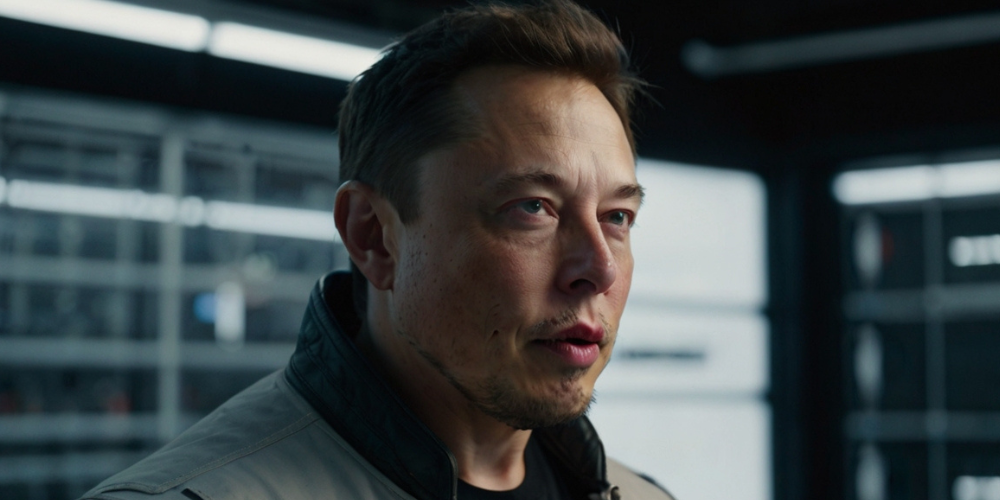Elon Musk's Insights on SpaceX, Boeing, and the Future of Space Exploration
Sep-11-2024

In the constantly changing realm of cosmic discovery, prominent organizations compete for dominance, and within this competitive arena, Elon Musk's SpaceX consistently remains a leader in pioneering advancements and bold aspirations. Recently, Musk offered his perspective on the current status of Boeing's Starliner crewed mission, which faced significant challenges. His remarks coincided with updates regarding SpaceX’s plans for its own majestic Starship rocket. This article explores Musk’s insights, contrasts the operational methods of SpaceX and Boeing, and delves into the future of crewed spaceflight.
1. Musk Weighs in on Boeing’s Challenges
In a candid podcast discussion, Musk articulated his views on the partial success of Boeing’s Starliner, which returned to Earth without its intended crew. His comments represent a significant moment in the competitive dynamics between the aerospace giants.
2. Starship’s Flight Path Delays
Musk highlighted that SpaceX is poised for its next major milestone, preparing its Starship for its fifth flight in Texas. However, the company awaits necessary approvals from the Federal Aviation Administration (FAA).
3. The Weight of Regulation
Musk expressed frustration over the regulatory processes that have delayed Starship launches, noting that the bureaucratic inertia feels paradoxical given the technological advancements achieved by SpaceX. "It really should not be possible to build a giant rocket faster than paper can move from one desk to another," he quipped, shedding light on the palpable tension between innovation and red tape.
4. SpaceX's Rapid Progress
Despite regulatory challenges, SpaceX has rapidly redefined the space launch industry with its ambitious flight schedule and successful missions, creating pressure on the FAA to adapt to its growing cadence.
5. FAA's Role and Response
Following incidents such as the Falcon 9's booster tipping over, the FAA has demonstrated a cautious but responsive approach to transition SpaceX back to flight operations. This adaptability highlights the dynamic nature of regulatory oversight in the face of evolving aerospace activities.
6. Public Criticism of the FAA
SpaceX’s fervent fan base has voiced concerns about the FAA’s assessments and decision-making processes, particularly regarding the expanded flight plans for Starship and the agency's ongoing investigations into environmental impacts.
7. Boeing’s Structural Comparisons
Musk also ventured into a critique of Boeing’s operational structure, suggesting that the company’s deep ties with government contracts have led to an inherent bureaucracy. This, he argued, impacts their efficiency compared to private enterprises like SpaceX.
8. New Leadership at Boeing
With Boeing’s recent shift in leadership, Musk noted the importance of having knowledgeable individuals at the helm—specifically, those with practical experience in aerospace. He emphasized that understanding the intricacies of aircraft and spacecraft operations is crucial for effective leadership in such companies.
9. Criteria for Success in Aerospace
Musk articulated a profound concept regarding success in aerospace endeavors, encapsulated in a metaphorical Venn diagram. He posited that for projects like Starship, success is not just a possibility—it is increasingly becoming a reality with each launch.
10. The Unique Design of Starship
Starship stands out as a groundbreaking design engineered for full reusability, signifying a shift in how missions to the Moon, Mars, and beyond can be conceptualized. Musk's commitment to this vision underlines the transformative potential of reusable spacecraft.
11. NASA's Role in Space Exploration
The article also touches on NASA's historical role in shaping the landscape of space exploration. While the agency has long been synonymous with government-led missions, the emergence of private entities like SpaceX has ushered in a new era characterized by commercial viability and innovative thinking.
12. The Future of Space Travel
As SpaceX readies itself for the anticipated flight of Starship, the discussion about the future of space travel intensifies. Elon Musk’s ambitions are not only to facilitate new missions but also to foster a sustainable presence on other planetary bodies.
13. The Broader Implications of Space Exploration
The impact of space exploration extends beyond mere technological advancement; it invokes questions of international cooperation, ethical considerations in space travel, and the quest for extraterrestrial life. Musk's vision reflects an understanding of these broader implications.
14. The Competitive Atmosphere
In this competitive atmosphere where each company strives to outdo the other, Musk’s outspoken nature offers a glimpse into the mindset driving SpaceX. His willingness to critique competitors is a testament to his confidence in his own company’s capabilities.
15. Conclusion: A New Era in Space Exploration
The dialogue surrounding space exploration is as dynamic as the technology itself. As figures like Elon Musk challenge conventional norms and aim for greater heights, the aerospace industry finds itself at a pivotal crossroads. With SpaceX leading the charge, the future looks promising, filled with potential for innovation and progress beyond Earth.
The rivalry, underpinned by both praise and critique, signals a transformative phase within the sector. As we look onward, the true test will lie in how these companies adapt and respond to the challenges ahead while embracing the wondrous potential of the cosmos.







